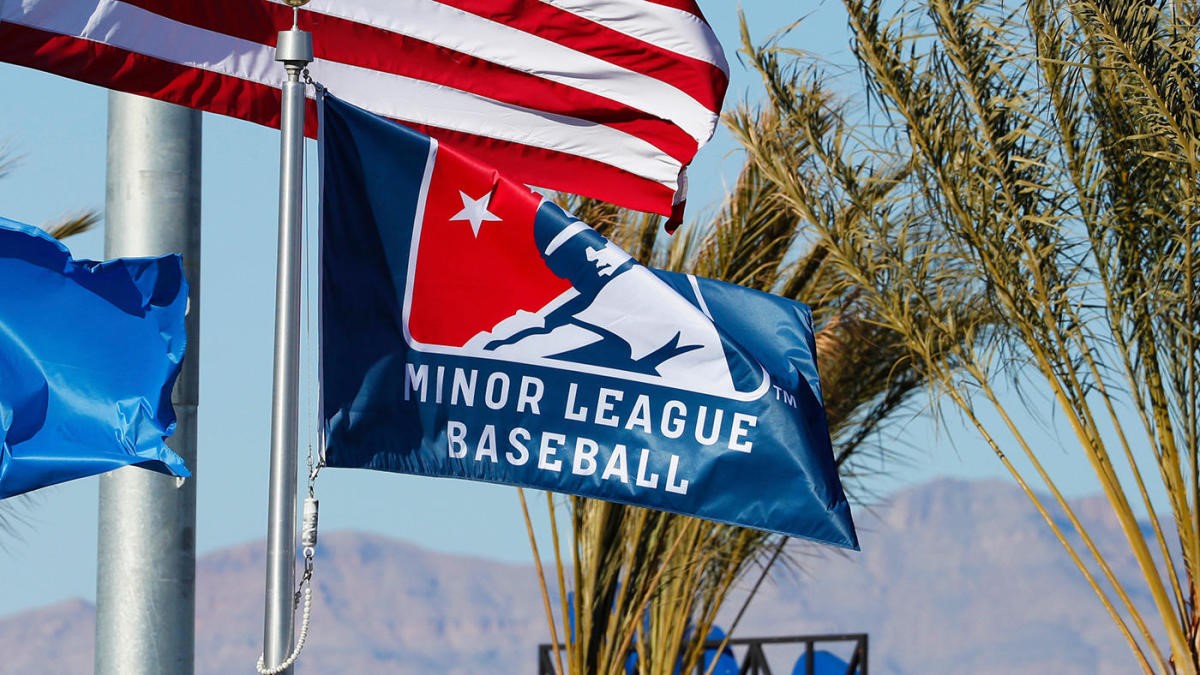This week, the Supreme Court handed minor league players a victory when it threw out Major League Baseball’s (MLB) attempt to dismiss a wage-and-hour lawsuit brought on by minor league players.
The suit, originally introduced by four dozen former minor leaguers, can now be expanded into a class-action lawsuit, covering thousands of minor league baseball players, and the Court’s decision to allow the lawsuit to proceed as a class action also gives even more energy to the growing efforts to organize by non-union minor league players.
“The significance of that is that it’s the difference between a small number of players being in the case versus thousands of players being in the case,” said attorney and former minor league pitcher Garrett Broshuis, who led the lawsuit and is the founder of Advocates for Minor Leaguers. “Just like with collective bargaining, it means that the players will be stronger.”
The trial is expected to start in 2021 in San Francisco in the U.S. Northern District Court of California. If successful, the lawsuit by former minor league players could overturn decades of legal efforts to refuse paying the minimum wage to over 5,000 minor league baseball players.
As of 2020, baseball players in the lowest levels of the minor leagues make a minimum of $290 a week, which is slated to be raised to $400 in 2021. Players in AAA, the highest level of the minor leaguers, make only $500 a week, slated to increase to $700 in 2021.
Currently, MLB salaries, whose annual minimum is set at $563,000, have increased their salaries by 1,000 percent in recent years. Compare this to minor league salaries where in terms of real wages, they have actually decreased, according to Advocates for Minor Leaguers.
Minor league baseball players are also only paid for the five months of the year in which they play. They receive nothing for attending six-week-long spring training, despite being forced to play every day to earn their jobs.
Many minor league ballplayers often drive for Uber or DoorDash after finishing their days playing baseball to make ends meet. However, nearly half of all minor league baseball players are immigrants, who are legally barred from working side hustles to make ends meet and forced to often live in crowded, substandard housing conditions.
However, a victory in the landmark class-action case could change everything for minor leaguers.
The victory allowing a federal class-action suit to proceed to trial comes after years of legal battles, starting with a controversial ruling in 1922 where the Supreme Court stated baseball was a “game” and not “interstate commerce” and thus couldn’t be regulated under federal law — a legal precedent that has endured despite numerous challenges.
Then, six years ago, a group of four dozen baseball players filed a class-action, wage-and-hour suit against MLB demanding back pay for violations of federal labor law.
MLB, in an effort to limit the legal precedent set by the case, hoped to restrict the lawsuit to only the original four dozen minor league players. For more than four years, MLB argued in various courts that the four dozen former minor league players should not be allowed to expand their lawsuit into a class action.
But the 9th Circuit Court of Appeals ruled last year that all minor leaguers who had played in California, Arizona, and Florida were eligible to be part of the class action, which then opened the lawsuit to potentially thousands of former minor league players.
By denying MLB’s request to block former minor leaguers from expanding their suit into a class action, the case will now be heard next year in federal court in San Francisco.
Because minor league baseball does not have a union, support comes instead from increasing activism by players, fans, sportswriters, and nonprofits like Advocates for Minor Leaguers who successfully fought for MLB to increase minor league players’ pay in 2021.
“There is a real growing recognition among players right now that the only way things will change is if they do stand together,” said Broshuis.
Unfortunately, Broshuis says those gains may now be erased as a result of COVID-19, citing that with the minor league baseball season canceled, teams have released and laid off more than 1,000 players, nearly 20 percent of their workforce.
With mass unemployment across the country, Advocates for Minor Leaguers helped scores of laid-off minor league players navigate the complex system of applying for Pandemic Unemployment Assistance. The efforts to help minor league players gain unemployment insurance helped swell the ranks for players involved in organizing for better conditions.
But with that assistance going away, many minor league ballplayers are struggling to get by, and the players’ calls to improve working conditions in minor league baseball have increased.
MLB is also proposing to eliminate approximately 40 minor league teams, leaving more minor leaguers at risk of being laid off this off-season.
“I think COVID really accentuated it because what happened with COVID, the minor leaguers were just treated like an afterthought, and it was what you saw that happened throughout society was when a group of workers lacked representation, they got left behind,” said Broshuis.
With baseball set to negotiate a new collective bargaining agreement this offseason, many are hoping that increased advocacy and support from Major League players will help lead to improved working conditions for baseball’s 5,000 minor league players.
Broshuis ultimately believes it will inspire more players to speak out about low pay and a lack of voice on the job.
“We are growing our numbers and developing a lot of support behind the scenes.”
Donate Today to Help Payday Cover the Fight for the Minimum Wage for Minor League Ballplayers

